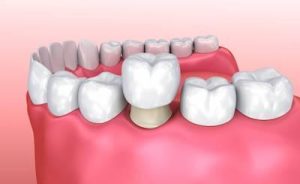 After a root canal in Clearwater, your dentist typically provides a tooth-colored filling or a dental crown a few weeks later. But immediately after a root canal, you leave the dental office and recover comfortably at home.
After a root canal in Clearwater, your dentist typically provides a tooth-colored filling or a dental crown a few weeks later. But immediately after a root canal, you leave the dental office and recover comfortably at home.
Later in the evening, when the anesthesia wears off, you may experience mild soreness. If you’re medically able, we recommend taking an over-the-counter pain reliever like ibuprofen.
Root canals are not scary or painful. Our dental team uses strong anesthesia and a gentle hand when treating your teeth.
Why Do I Need a Root Canal?
If you need a root canal, it means that the infection has traveled to the root or canal of your tooth. This happens for a few reasons, including:
- Untreated tooth decay
- Injury or trauma to the tooth
- A tooth fracture
In most cases, you’ll notice symptoms and call our office for an emergency dental appointment.
Symptoms include:
- Tooth pain
- Tooth discoloration
- Jaw or face swelling
- A bump on the gum
Sometimes your dentist discovers the emerging infection during your routine checkup, and we’re able to treat it before you feel pain or suffer the symptoms.
What Are the Steps of a Root Canal?
The first step is an assessment in our dental office. We want to be sure that you have a tooth root infection—some oral health symptoms can mimic one another. If the dentist finds that you have an infection following an exam, we numb the painful area around your tooth.
When anesthesia takes hold, we gently extract the infected pulp and tissue from the tooth. We also rinse and clean the canal to promote healing. The final step is sealing the tooth with a temporary filling to avoid reinfection.
At a future appointment, we seal the tooth with a tooth-colored filling or cap it with a dental crown.

Do You Need a Crown after a Root Canal?
In most cases, you will need a dental crown because the infection weakens the tooth’s structure and leaves it at risk for damage through chewing. If the infection was small or emerging, your dentist may talk to you about a dental filling instead.
Can I Lower My Root Infection Risks?
Preventive dentistry—dental exams and teeth cleanings in Clearwater, FL—are the best ways to lower your infection risks. Regular dental care also mitigates your risks for gum disease and tooth decay.
For your part, you should brush and floss your teeth after every meal or no less than twice daily. And be sure to report oral health changes to your Clearwater dentist, including tooth sensitivity and color changes.
Some root infections result from tooth trauma. So, be sure to wear the proper mouthguard when playing sports and the correct nightguard if you grind and clench your teeth (bruxism) at night.
Gentle Root Canals Near Me
If you have a toothache or swelling, it’s essential to contact our emergency dentist in Clearwater to arrange a visit. We treat most dental emergencies on the same day!
Our team accepts most PPO insurance plans and is happy to work with CareCredit financing. We also have our own exclusive membership plan to help patients budget their dental care.

